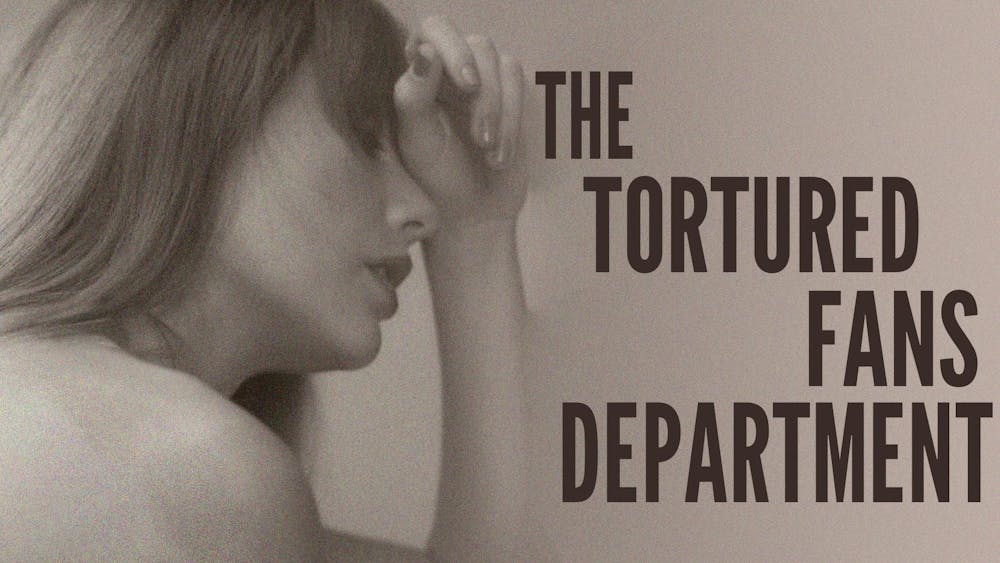
“Spectre,” the 24th canonical James Bond movie, kicks off with a four-and-a-half minute single-take tracking shot. In the wake of “Birdman” and “True Detective,” it seems “Spectre” director Sam Mendes may be a little late to the long-take party. But what Mendes lacks in originality he makes up for with bravura. In traversing city blocks worth of streets and rooftops, Mendes’ shot encapsulates a larger, more topographically sprawling chunk of space than “Birdman’s” claustrophobia-inducing backstage shots. Thousands of extras crowd the streets, so Mendes’ shot feels more alive than the Cary Fukunaga’s shot from “True Detective,” with its tightly choreographed, point-to-point confrontations. And thanks to those diegetic drums, Mendes’ shot even has a heartbeat. “Spectre” doesn’t merely begin — it arrives.
And yet, despite the cutting edge camerawork (courtesy of Hoyte van Hoytema), “Spectre” quickly establishes itself as the most traditional of the Daniel Craig-era Bond movies. It’s the first of Craig’s movies to feature the entire motley crew in their familiar positions: Q (Ben Whishaw) provides Bond with actual gadgets; M (Ralph Fiennes) clips 007’s wings after the reckless Mexico City stunt (but ultimately aids in the rogue agent’s fight against the true baddies); and Miss Moneypenny (Naomie Harris) fulfills her familiar role as M’s secretary (it’s not the most dynamic role, but the franchise has roots in the 1960s, after all. Like I said, it’s traditionalist, not feminist). And unlike last time around, we get a proper Bond girl in Madeleine Swann (Léa Seydoux). “Spectre” also features the snappy humor that pervaded the Connery era but was mostly lacking from Craig’s previous films. Credit Ben Whishaw, whose comedic timing plays more prominently than it did in “Skyfall.” The humor, the action, the “Mission Impossible-esque” team dynamic, and the passable, if somewhat effete villain all add up to a picture that is loads of fun (particularly for the die-hard Bond fan). But “Spectre” isn’t without its fair share of problems.
At the time of its release, “Skyfall” felt like a transitional Bond movie. It concluded an unofficial trilogy about a man who, having lost everything — his parents, his lover, his quasi-mother — assumed the life of a cold, distant assassin. “Skyfall’s” ending in particular, which saw Bond, M and Miss Moneypenny return to the familiar wood-paneled offices of MI6, ready to save the world once again, functioned as a bridge between revisionist Bond flicks like “Casino Royale” and the franchise’s presumably traditional trajectory. “Spectre,” by embracing the strange status quo of Bond films of yore, seems to fulfill “Skyfall’s” promise. Bond as we knew him throughout the latter half of the 20th century has arrived.
“Spectre,” however, goes beyond merely assuming a familiar form. Like any film featuring a character named Madeleine Swann, “Spectre” is about memory: Characters are haunted by memories of the past, and our experience of the film is shaped by our memories of the franchise. Christoph Waltz’s Franz Oberhauser torments Bond with the memory of Vesper Lynd. (RIP to the best Bond girl.) The (not-so) surprising revelation of Oberhauser’s true identity — which uses the audience’s familiarity with Bond movies to generate gravity — was lost on my Bond-illiterate friend. So, too, were stunning visual callbacks to “From Russia with Love” and “On Her Majesty’s Secret Service,” two of my favorite Bond films.
Unfortunately, the use of memory is the fundamental problem with “Spectre.” While there are visual references to previous films, most of the callbacks revolve around each character’s emotional arcs. In fact, Oberhauser’s raison d’être is to play with Bond’s emotions. As a result, “Spectre’s” central conflict is at odds with the fully developed Bond promised by “Skyfall.” The writers (John Logan, Neal Purvis, Robert Wade and Jez Butterworth) mine old conflicts — the death of Vesper, the death of M — to propel 007’s arc in “Spectre.” But Craig’s Bond has nothing more to learn from these events; his metamorphosis is already complete. Even “Spectre’s” ending, which may seem surprising narratively and in its overtly political stance, is actually just a retread of themes from “Quantum of Solace.”
The origin story cannot continue ad infinitum. At some point, the franchise must wholeheartedly return to chronicling the (mostly) standalone adventures of everyone’s favorite hit man. Writing for The New York Times, Manohla Dargis argues it has always been Bond’s inhumanity that is so fascinating. I disagree. But one does wonder if Craig’s portrayal of Bond’s startling humanity is incompatible with a franchise in which Bond no longer has room to grow.













